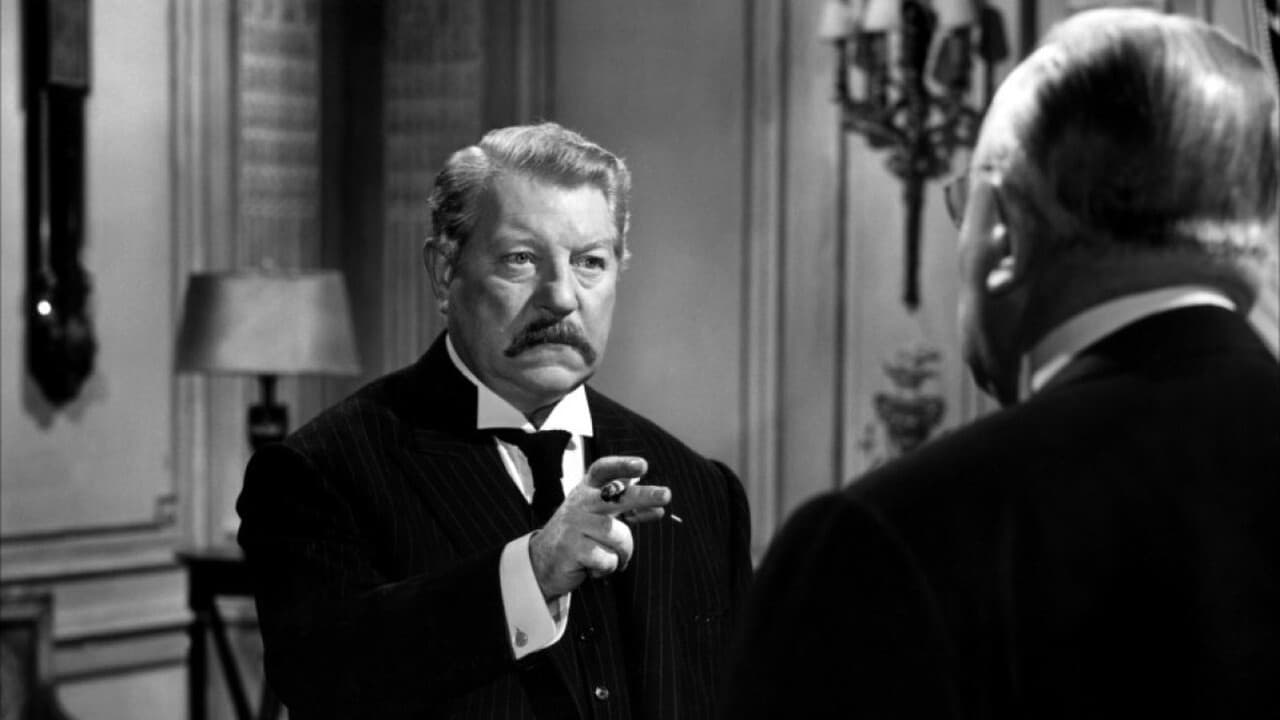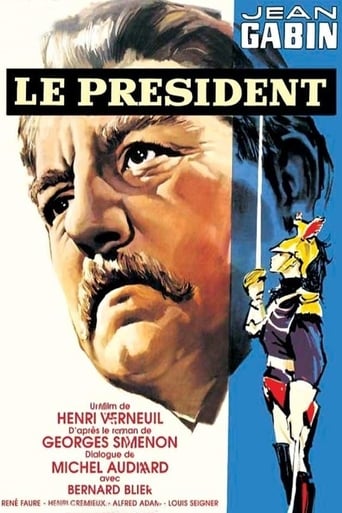



You won't be disappointed!
Strictly average movie
Charming and brutal
At first rather annoying in its heavy emphasis on reenactments, this movie ultimately proves fascinating, simply because the complicated, highly dramatic tale it tells still almost defies belief.
View MoreEmile Beaufort, a former French president, is now living in his country home, surrounded by his memories about his life in politics. As the story begins, the English P.M., Sir Merryl, arrives to pay a visit to his former ally. The visit, although brief, tells us how much appreciated Beaufort was during his public life. Now in retirement and in fading health, Beaufort has been working in his memoirs, assisted by his faithful secretary, Ms. Milleran.The former president confesses he was married for only ten years, but he had a forty year affair with his mistress: France. It is clear the love Emile has for the country in which he was able to work toward its greatness. One of the worst moments in his life is connected to the ambitious Philippe Chalamont, a man that almost derailed France's recovery after WWII by revealing a state secret to his wife. Emile Beaufort never forgave him, asking him to write a letter just in case he would try to capitalize on his connections to become president of France. In the end, Emile Beaufort thought better of fulfilling his promise, not before having a confrontation with Chalamont.The film is based on a George Simenon novel, of the same title. Not knowing what the film was about we were looking for the wrong reason when the film started. It has nothing to do to anything prior associated to the author, a master writer of mystery and crime. As directed by Henry Verneuil, the movie is a political drama that is involving, even though French politics of those years are not exactly a subject often seen in pictures. The crisp dialogue was adapted by Michel Audiard, the father of Jacques and Francois Audiard, in collaboration with the director. To Mr. Audiard's credit the sequence where Emile Beaufort faces a hostile parliament is one of the best things in movies about this subject.The best asset in the film is Jean Gabin. He was a man that brought an integrity and credibility to everything he asked to play. Such is the case with his Emile Beaufort, a man that truly loved his country. Mr. Gabin gave one of his many excellent portrayals for the French cinema in this film. Equally good, Bernard Blier, another excellent actor who matches Mr. Gabin well. Renee Faure is seen as his secretary Milleran. Alfred Adam, Louis Seigner, are seen among the supporting players.
View MoreThis movie is based on the book, the President, written by Georges Simenon. But, the end is so different from the book. Emile Beaufort, the President, that means, former Prime Minister, lives his retirement in his house... Built with flashbacks, we see him 20 years before, trying to govern France, between political pressures from his majority, specially when he need to devalue the Franc or start building Europe. He has to fire his assistant who became a political leader. But, The president has information that could end his career. That's the dominant point of the movie, and the difference with the book stands with Beaufort decision and capacity to act. Michel Audiard, the best French writer, wrote several wonderful sentences that could be used in Parliament.
View MoreTo watch this movie, I needed (i) some free time on a rainy afternoon to think about and enjoy an intelligently made film, (ii) to know some early films with the following names : Audiard, Blier, Gabin, etc. (iii) to refresh my knowledge of France's former institutions. This film got me to that point when you like what you're watching so much that you end up taking notes while watching it. The more I see Blier in his films, the more I like him. He plays once more a supporting part, but he is great as the ambitious ambivalent mischievous politician. Gabin tends to recycle the style of his former parts. However if you take into account the fact that he actually plays a mix of three different politicians (Clémenceau, Jaurès and De Gaulle), it is in the end actually quite understandable to see him depicted as a role model for all politicians, always having the right word with the right occurrence. Although you might object on some of the aspects of his economic policy, which was actually applied during these years, he is respectable and righteous. And there is this moment of anthology where he speaks before the congressmen, which is instructive politically and cinematographically. The movie is well constructed. The pace is rather slow, but it is to emphasize on the dialogs, since they tend to be all efficient in every scenes. Politically the film is quite puzzling, since some of the issues raised are somehow still debated today, and this after some 70 years, while depicting accurately the role and the quirks of politicians and insisting on their duties as men elected from the people. This movie is well directed and actually allows you to remember it after seeing it. The movie manages to be entertaining and instructive. Go for it.
View MoreThe tirade of The President in front of the French Parliament during the film, is, in my opinion, one of the most powerful scenes I know.By the strength of the actors, by the strong political message delivered (and more than 40 years after, still up to date), and of course by the 'straight to the point' lines of the dialogues, written by Michel Audiard, this scene is just fascinating. It's just a speech every liberal politician must dream of.And it is served by a camera moving both with the solemnity due to the place and the historical circumstances, while keeping at the same time a focus on the underlining of passions and reactions of the main characters.So, definitely, I'm a fan!"L'important n'est pas de sonner juste, mais de sonner à l'heure"
View More